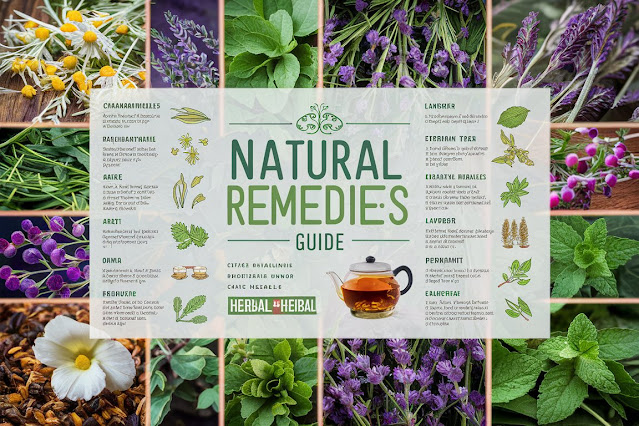In today's fast-paced world, many people are turning to natural remedies to support their health and well-being. From herbal teas to essential oils, there's a plethora of options available for those seeking alternative healing methods. In this comprehensive guide, we'll explore various herbal remedies and provide tips for incorporating them into your daily routine. Whether you're looking to boost your immune system, ease digestive discomfort, or promote relaxation, we've got you covered.
Table of Contents
Introduction
Herbal remedies have been used for centuries to promote health and well-being. Unlike synthetic medications, which often come with side effects, herbal remedies harness the power of nature to support the body's natural healing processes. In this guide, we'll explore the benefits of herbal remedies and provide tips for incorporating them into your daily routine.
Benefits of Herbal Remedies
Herbal remedies offer a wide range of benefits for both physical and mental health. Some of the key advantages include:
Natural Healing: Herbal remedies work with the body's natural processes to promote healing and restore balance.
Minimal Side Effects: Unlike pharmaceutical drugs, herbal remedies typically have fewer side effects and are gentler on the body.
Cost-Effective: Many herbal remedies are affordable and accessible, making them a cost-effective option for maintaining health and wellness.
Holistic Approach: Herbal remedies take a holistic approach to health, addressing the root cause of symptoms rather than just masking them.
Popular Herbal Remedies
There are countless herbal remedies available, each with its own unique properties and benefits. Some of the most popular options include:
Echinacea: Known for its immune-boosting properties, echinacea is often used to prevent and treat the common cold and flu.
Peppermint: Peppermint is prized for its ability to soothe digestive issues such as indigestion, bloating, and gas.
Lavender: Renowned for its calming and relaxing effects, lavender is commonly used to reduce stress and promote better sleep.
Ginger: Ginger is a potent anti-inflammatory herb that can help alleviate nausea, motion sickness, and menstrual cramps.
Turmeric: Turmeric contains powerful antioxidants called curcuminoids, which have anti-inflammatory and pain-relieving properties.
How to Use Herbal Remedies
There are many ways to incorporate herbal remedies into your daily routine. Some popular methods include:
Herbal Teas: Brewing herbal teas is one of the simplest ways to enjoy the benefits of herbs. Simply steep the herbs in hot water for several minutes, strain, and enjoy.
Tinctures: Tinctures are concentrated liquid extracts made by soaking herbs in alcohol or glycerin. They can be taken orally or added to beverages for easy consumption.
Topical Applications: Some herbs can be applied topically to the skin in the form of creams, oils, or poultices. This method is often used to treat skin conditions or provide pain relief.
Safety Considerations
While herbal remedies can be safe and effective when used correctly, it's essential to exercise caution and consult with a healthcare professional before starting any new regimen. Some important safety considerations include:
Dosage: Always follow the recommended dosage instructions provided with herbal remedies. Taking too much of a herb can lead to adverse effects.
Drug Interactions: Certain herbs may interact with medications or exacerbate existing health conditions. It's crucial to disclose all herbs and supplements you're taking to your healthcare provider.
Quality: Choose high-quality herbs from reputable sources to ensure purity and potency. Avoid purchasing herbs that are past their expiration date or have been improperly stored.
FAQ
Are herbal remedies safe for children?: While many herbal remedies are safe for children, it's essential to use caution and consult with a pediatrician before giving herbs to young children.
Can I use herbal remedies alongside prescription medications?: In some cases, herbal remedies can interact with prescription medications, so it's important to consult with a healthcare professional before combining the two.
How long does it take to see results from herbal remedies?: The timeline for seeing results from herbal remedies can vary depending on the individual and the condition being treated. In general, it's best to be patient and consistent with herbal remedies for optimal results.





No comments:
Post a Comment